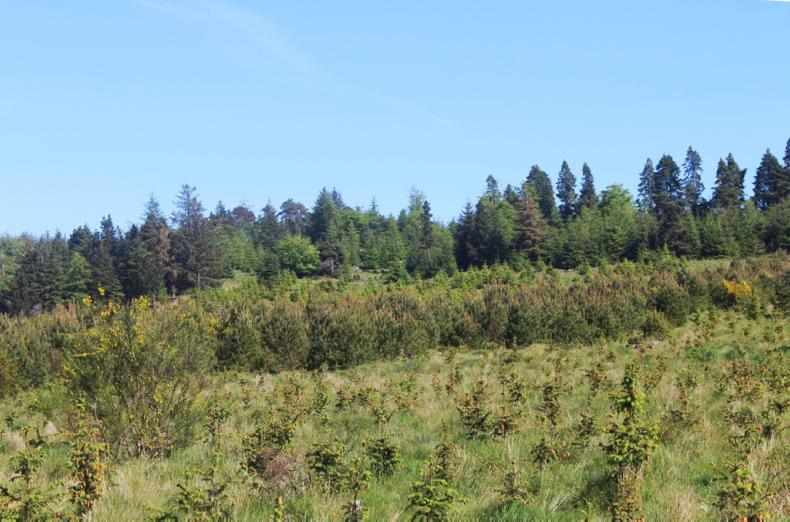The EU climate change strategy identifies the potential contribution of forest management and additional afforestation towards reaching carbon (C) neutrality by 2050.
In Ireland, afforestation has played an important role in reducing national emissions reduction targets under the international compliance market (eg the Kyoto protocol and EU burden sharing agreement), currently sequestering 5Mt CO2 per year.
However, it is expected that afforested lands may become a net emission in the future, even at an ambitious future afforestation rate of 4,000ha per year.
International and national voluntary C trading platforms have been established for some time
In recognition of the lack of participation and incentives for landowners to contribute to the climate change mitigation effort, the EU has set up a roadmap to incorporate voluntary C trading as an additional mechanism under the green deal and future EU burden sharing agreements.
International and national voluntary C trading platforms have been established for some time, but there are two major barriers that limit farmer participation in these markets.
Firstly, in order to ensure that sequestration is verifiable, additional and permanent, the rules for eligibility under existing voluntary trading schemes are complex and projects may not be economically viable without economy of scale.
However, this can be overcome by creating a national voluntary scheme, such as the UK Woodland Carbon Code (UK WCC), which simplifies criteria for eligibility and registration of afforestation projects and reduces cost, thus overcoming economic barriers.
The UK WCC cannot be applied under Irish conditions because of different legislative requirements
It should be recognised that afforestation project eligibility rules only consider future afforestation and exclude afforestation on organic soils, due to concerns of a reversal of net emission caused by drainage of these soils.
The UK WCC cannot be applied under Irish conditions because of different legislative requirements. We need a national code that follows international good practice.
Secondly, and most importantly, C credits must not be double accounted, ie credits cannot be claimed by both the State, under international compliance mechanisms, and by projects under voluntary markets.
Voluntary market eligibility requirements stipulate a need for a guarantee from the designated national authority
This is not an ownership issue, but an issue of double accounting. Double accounting under most voluntary trading schemes is overcome by adjusting compliance credits on the national registry.
Voluntary market eligibility requirements stipulate a need for a guarantee from the designated national authority, stating that compliance credits will be adjusted against voluntary credits from a registered afforestation project.
It may be argued that the precise adjustment mechanism is still unclear in relation to the EU burden sharing agreement, but the EU has indicated that the role of the voluntary market will be recognised as part of the C neutrality vision by 2050. It is not a case of if it will happen, but when.
Pathway clear
A pathway towards a national afforestation voluntary market is clear and existing barriers can be overcome, but not without political will and vision. A failure to implement such a market could have negative climate change mitigation outcomes.
Most concerning is that softer “greenwashing” initiatives, such as insets instead of offsets, may become the status quo, where actual removals are not verified using a standard code.
This may erode the real value of climate change mitigation action by the forest sector. Finally, assuming that the current afforestation target (8,000ha per year) can be met, it is possible for new forests to potentially remove around 40Mt CO2 from the atmosphere over the next 30 years.
It is, however, unlikely that these afforestation rates can be achieved without incentives for landowners to promote additional climate change mitigation efforts. Failure to do so is a lost opportunity and one we can’t afford if we are serious about climate change.
We should now consider how voluntary trading mechanisms for both afforestation and improved forest management can be incorporated into the Climate Change Action Bill.
Kevin Black is director of Forest, Environmental Research and Services (FERS) Ltd.






 This is a subscriber-only article
This is a subscriber-only article











SHARING OPTIONS: